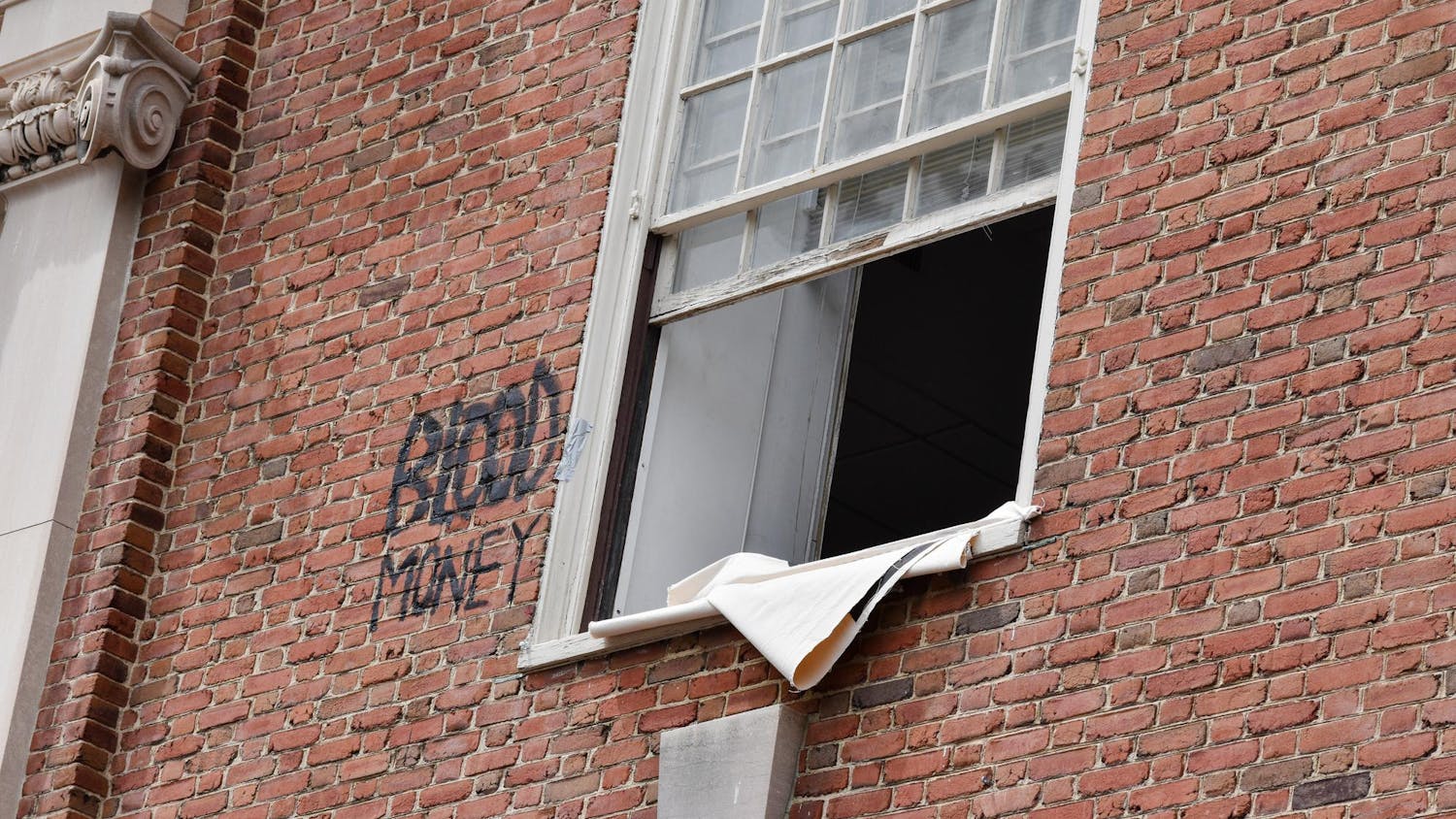Candidates in Rhode Island this election cycle offered a common refrain — the state's pension system for public employees is broken.
Perennial underfunding, unsustainable obligations and rosy forecasts for investment returns that cratered amid economic collapse have put Rhode Island's pension plans in jeopardy.
The state's main pension plan faces an unfunded liability — the gap between its current assets and its commitments to pensioners — of almost $5 billion, placing it among the least solvent in the nation. Its cities and towns, already burdened with debt, also confront the reality that their employees may never see the pension benefits they were promised in better times.
Now its politicians — many elected with the support of the unions whose members find their retirement security threatened — must make the decision their predecessors avoided: submit the pension system to painful reform or face dire consequences for the state's finances.
A system on the brink
"It's a huge issue for the state and for a lot of municipalities," said Ashley Denault, policy analyst at the nonpartisan Rhode Island Public Expenditure Council.
The state pension system — known as the Employees' Retirement System of Rhode Island — has an unfunded liability of $4.8 billion, Dave Layman, communications director for the Office of the General Treasurer of Rhode Island, wrote in an e-mail to The Herald. The current value of the pension fund is $7.2 billion, according to Layman.
The state administers five separate pension plans, which "provide retirement, disability, survivor and death benefits" to state employees, judges, police officers and teachers as well as nearly 80 percent of municipal employees, Layman wrote.
The remaining municipal workers are covered in independent plans administered by cities and towns. But like the state system, municipal pension plans face massive funding gaps.
According to a March 2010 report released by the state auditor general, 23 out of 36 municipal pension plans are "at risk." Lower-than-expected investment returns and municipal bureaucrats' failure to fully fund the government's share of the plans have created a total unfunded liability of $1.9 billion for these plans. Currently they are projected to meet only 43 percent of expected pension obligations, the report found.
Providence, which has the largest net pension obligation, has an unfunded liability of more than $800 million, according to the report.
"We have assumptions built into our pensions that might not be realistic right now," Denault said.
For the state's pension system, actuaries assume an 8.25 percent rate of return on the fund's investments, which is used to finance the gap between contributions and obligations. But the state's investments grew at an average rate of 5.2 percent over the past decade, the Rhode Island Public Expenditure Council found.
Due to the state pension's "huge reliance on investments," Layman wrote, lower-than-expected returns and increased demands by aging pensioners mean growing pressure on an already over-extended system. While 25,000 retirees are now receiving benefits, the state system has also promised future benefits to 35,000 current employees, Layman wrote.
As this demographic shift occurs, a growing portion of the state's budget will have to go to making up the shortfall.
"The state has to continue paying down the unfunded liability by 2030," Denault said. "What the state has to pay is going to grow over time, and that's what's actually going to be unsustainable."
One prospect for reform is re-amortization, a strategy similar to refinancing a home mortgage. This would extend the time during which Rhode Island can fund its pension liability, but would result in a projected $2.2 billion additional cost to the state. Other options include switching to a hybrid pension plan — which would transfer more costs to employees — or simply reducing benefits while raising employee contributions.
Pension politics
Unions have long been a political force in Rhode Island, a state perennially dominated by Democrats, and the recent midterm election was no different.
Endorsements from major unions representing the state's teachers and health care workers gave governor-elect Lincoln Chafee '75 P'14 a crucial volunteer and fundraising advantage that allowed the independent to reach voters without the help of major-party backing.
Under new campaign finance rules, unions created the Working Families Coalition, a political action committee that raised $27,230 in an effort to defeat five incumbent state legislators and support five contenders for the Pawtucket School Committee in the September Democratic primaries. Four of five targeted state legislators lost their primaries, while all five school committee candidates won.
And in the General Assembly, a post-election leadership shuffle gave top union official Dominick Ruggerio, D-North Providence, the No. 2 post of Senate majority leader in the heavily Democratic state Senate.
"The unions are the Democratic Party in this state," said Giovanni Cicione, Rhode Island Republican Party chairman.
Unions raised more than $600,000 to fund campaigns in the 2010 election cycle, according to the Rhode Island Statewide Coalition, a nonprofit backed by taxpayers and businesses. Public employee unions directed funds to almost 75 percent of candidates for the General Assembly, said Donna Perry, the coalition's communications adviser.
"Obviously, when legislation and votes come up that would diminish or retool the compensation packages for public sector employees, it should come as no surprise to anyone that the legislature takes baby steps to address that compensation structure," she said.
John Marion, executive director of Common Cause Rhode Island, cautioned that union power should not be overestimated. The largest contributions this election cycle came from Chafee in the form of loans to his own campaign and from the Democratic Governors Association to support state Treasurer Frank Caprio in the state's gubernatorial contest, not from unions, Marion said. Both contributions exceeded $1 million.
Unions may not be the political kingmakers their opponents claim they are, Marion added, citing recent losses by union-backed candidates like state legislator Chris Fierro, D-Woonsocket, who was defeated in his Democratic primary.
To the extent that unions do exert influence in the state, the recipients of their electoral support are among those responsible for the current state of the pension system meant to secure their retirements.
"Of course the unions are close to the Democrats, but if you ask the unions, they have mixed views about how they've been treated," said Jay Goodman PhD'66, professor of political science at Wheaton College in Massachusetts and the author of "Democrats and Labor in Rhode Island, 1952-1962."
‘For the next politician'
Mismanagement by past policymakers is a major cause of the current pension problems, according to Scott Molloy, University of Rhode Island professor of labor and industrial relations.
"By and large the problem was that on the administrative side and the political side they put things off for the next politician, for the next election, for the next generation," Molloy said.
Governor-elect Chafee faces higher stakes for similar inaction.
Chafee spokesman Michael Trainor said Chafee is looking into the pension issue and will issue a definitive proposal this December.
Chafee supports moving new state employees to a hybrid plan based on the federal government's model, but believes benefit packages for current employees should be left untouched due to his "strong sense that you can't retroactively take away something that has been given or pr
omised," according to Trainor. Chafee also favors moving independent local plans into the state-administered pension plan for municipal employees, Trainor said.
For those who think unions' recent support of Chafee will make it difficult for him to reform the pension system, Trainor pointed to Chafee's record as Warwick mayor.
"He worked very closely with the unions and got union concessions on the pension system as mayor," Trainor said. "He did that by maintaining a mutual level of respect and communication and hopes to do the same as governor."
Chafee's proposals, if he chooses to enact them, would be but the latest in recent reforms to the state's pension system.
In 2009, Rhode Island increased the retirement age for new state workers to 62, reduced benefits for current employees and toughened requirements for receiving disability benefits.
Providence has also changed its pension plan, according to Mayor David Cicilline '83, who was recently elected to the U.S. House of Representatives.
"There's no easy answer to it, but you've got to continue to at the negotiating table try to make the costs more sustainable by looking at issues like raising the retirement age or minimum years of service or increasing employee contributions," he said.
Yet the contentious relationship between Cicilline and the Providence firefighters union underscores the challenges facing pension reform.
"We'd been at war with Mayor Cicilline for the prior eight years," said Paul Doughty, president of Local 799 of the International Association of Firefighters, of the union's long-running feud with the mayor. The union endorsed Cicilline when he first ran for mayor in 2002 but later cut ties amid bitter contract negotiations.
When a city auditor's report released in late October found that Providence failed to make roughly $24.7 million in monthly payments to its pension system, the firefighters union sued Cicilline. Since the lawsuit, the city has made the required payments, Doughty said.
Doughty added that while the city's current pension system may need changes, failing to meet pension obligations is simply not an option.
"You have retirees out there who have a constitutional right to this pension, so the city is on the hook for this one way or another," he said.




